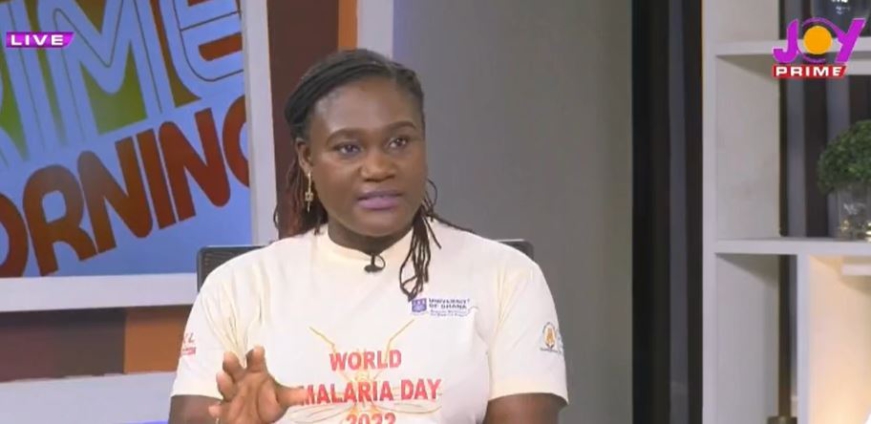A Senior Research Fellow at the Noguchi Memorial Institute for Medical Research (NMIMR) has called for more reforms and investments to be made into the fight against malaria in the country.
Dr. Linda Eva Amoah said despite various interventions made to reduce malaria infections, pregnant women and children below five years remain highly susceptible to the disease.
She mentioned that cases of malaria among pregnant women usually affect the unborn babies, saying it is one of the leading causes of stillbirths in the country.
She warned this trend may get worse if practical steps are not taken to salvage the situation.
“They [children and pregnant women] are the ones that do suffer the most because for children under five, their immune system isn’t that well-developed and once you become pregnant, you also have become susceptible to a whole lot of different things.
“So, these two categories are very susceptible to malaria and most of our interventions are actually targeted to help them,” she said.
Dr Amoah stated in an interview on Prime Morning, Monday, that intervention efforts, investments and innovations must be accelerated by stakeholders to control spread and infections.
“I don’t think you can isolate one from the other; you need even to invest to become innovative. If you have a plan of how to make a very good diagnostic tool, without somebody investing in that idea, it can’t materialise.
“So, we do need investments – investment will help us actually even expand upon the current interventions that are ongoing and it will also help people who have some innovations to actually put their innovations out for it to actually materialise,” she added.
Currently, there is an indoor residual spraying exercise taking place nationwide to ensure that house walls are sprayed to prevent mosquitoes.
“Because the female anopheles mosquito lays its eggs in stagnant water, we have larviciding occurring across the country where we spray larvicides on the water bodies…that kills the mosquito larvae which would have grown into the adult mosquito.
“Then we have some control measures for pregnant women where women who go for ante-natal care are given medicine that prevents them from actually getting malaria,” Dr Linda Amoah listed.
Latest Stories
-
Hamas security officer says group has lost control over most of Gaza
30 minutes -
TEWU-TUC denounces splinter union’s strike as ‘unlawful and destructive’
42 minutes -
Rising phenomenon of academic title ‘fraud’; vice chancellors back GTEC to purge system of all ‘unearned’ titles in PhD
2 hours -
Kudus keen on Tottenham move despite first bid rejected
2 hours -
How our lack of enlightenment costs us more than corruption
3 hours -
Hearts of Oak and Asante Kotoko renew rivalry in President’s Cup clash
3 hours -
WAFCON 2024: Morocco and Zambia draw opening match
3 hours -
Texas flood victims: Girl ‘having time of her life’ and ‘heart and soul’ of camp
4 hours -
Archaeologists unveil 3,500-year-old city in Peru
4 hours -
British Columbia College advocates AI at its 9th graduation ceremony
4 hours -
Two administrations, same pattern of betrayal: LI 2462 and the legacy of Ghana’s forests
4 hours -
“Making Ghana the True Black Star of the World” book launched in Bibiani
4 hours -
Cutoff points a barrier to tertiary education for poorer students – UENR Official
5 hours -
Armed robbers shoot 4 passengers on Winneba Highway, one arrested
5 hours -
Two rescued after early morning trailer crash in Asante Akim Central
5 hours

